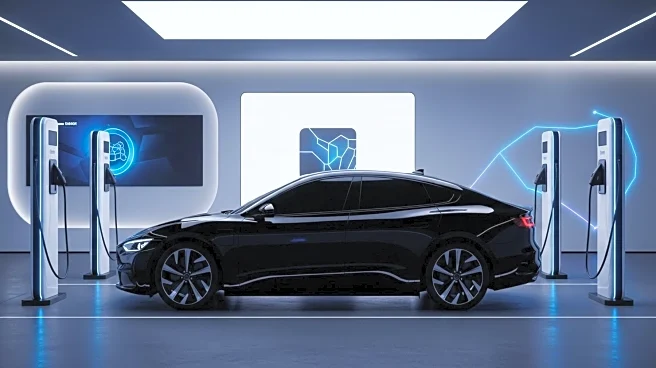What's Happening?
In the second quarter of 2025, U.S. electric vehicle (EV) sales experienced a 6% decline compared to the previous year, primarily driven by a significant drop in Tesla's sales. While non-Tesla EV sales remained relatively stable, increasing by only 218 units, Tesla's sales decline was substantial enough to impact the overall market. Despite this downturn, the EV market in the U.S. has shown considerable growth over the past few years, with sales in Q2 2025 being 60% higher than in Q2 2022 and 163% higher than in Q2 2021. This indicates a robust expansion of the EV market, although Tesla's recent performance has been a setback.
Why It's Important?
The decline in Tesla's sales is significant as it highlights the challenges the company faces in maintaining its market dominance amidst growing competition from other EV manufacturers. This trend could have broader implications for the U.S. EV market, potentially affecting consumer confidence and investment in EV infrastructure. Tesla's performance is crucial for the overall perception and adoption of electric vehicles in the U.S., and a continued decline could slow down the transition to sustainable transportation. Additionally, the stability of non-Tesla EV sales suggests a diversification in consumer preferences, which could lead to a more competitive and innovative market landscape.
What's Next?
The future of Tesla's sales performance will likely depend on its ability to address production challenges and enhance its market appeal. The company may need to innovate and introduce new models or features to regain its competitive edge. Additionally, the broader EV market will be watching Tesla's strategies closely, as they could influence industry trends and consumer behavior. Stakeholders, including investors and policymakers, will be keen to see how Tesla navigates these challenges and whether it can contribute to the continued growth of the EV market in the U.S.








